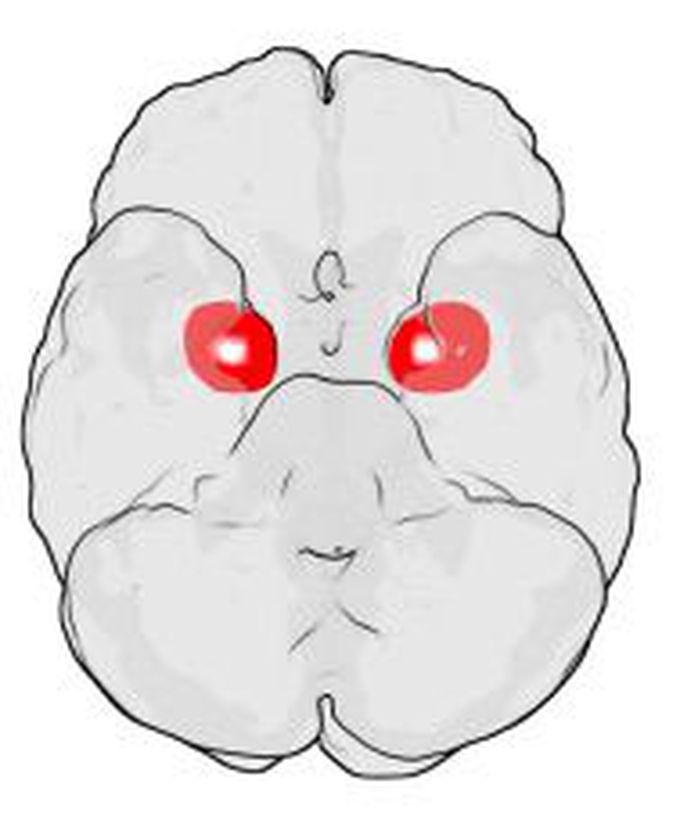


The Amygdala (Happy, Sad, Scary)
The amygdala is a small almond-shaped structure; there is one located in each of the left and right temporal lobes. Known as the emotional center of the brain, the amygdala is involved in evaluating the emotional valence of situations (e.g., happy, sad, scary). It helps the brain recognize potential threats and helps prepare the body for fight-or-flight reactions by increasing heart and breathing rate. The amygdala is also responsible for learning on the basis of reward or punishment. Due to its close proximity to the hippocampus, the amygdala is involved in the modulation of memory consolidation, particularly emotionally-laden memories. Emotional arousal following a learning event influences the strength of the subsequent memory of that event, so that greater emotional arousal following a learning event enhances a person's retention of that memory. In fact, experiments have shown that administering stress hormones to individuals immediately after they learn something enhances their retention when they are tested two weeks later.

